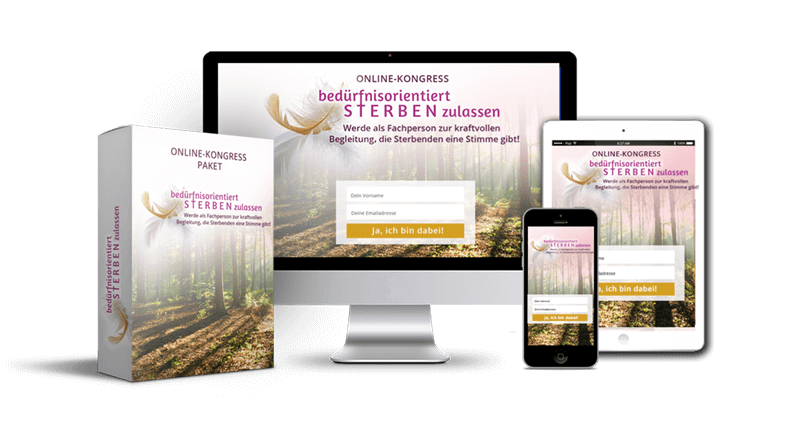Wenn dir das Interview gefallen hat, informiere deine Freunde in den Sozialen Netzwerken.
Pauline Füg
Pauline erzählt dir von ihrem Projekt DemenzPoesie. Demenz - nicht nur die Betroffenen und ihre Zugehörigen fühlen sich manchmal hilflos und haben Angst davor, daran zu erkranken. Pauline und Herrichte stellen dir ein Projekt vor, in dem sie übergreifend und nachhaltig tätig sind. Denn alle Beteiligten, Betroffenen, Zugehörigen und Fachkräfte werden durch die DemenzPoesie geschult. Die Erkrankung ist nicht reversibel. Aber du kannst den Moment sehen. Den Ist-Zustand behalten und das schulen, was noch da ist. Es geht um den Erhalt von Fähigkeiten und darum, Erinnerungen zu aktivieren. Was kannst du tun? Wahrnehmen, annehmen, nicht bewerten, den Fokus auf das legen, was ist und nicht auf das, was nicht mehr ist - und das ist eine Chance, die Bindung in dieser Lebensphase nochmal neu zu definieren und zu gestalten.

Mit DemenzPoesie® haben wir, das sind Pauline Füg (Diplom-Psychologin) und Prof. Dr. Henrikje Stanze (Diplom-Berufspädagogin mit Fachrichtung Pflegewissenschaft), eine Therapieform zur Gedächtnisrehabilitation von Demenzkranken entwickelt. Mit unserem Projekt "KunstPoesie" haben wir die DemenzPoesie® für alle weiteren Gruppen mit speziellen Bedürfnissen angepasst. Wir gestalten unsere Session für und mit Menschen mit jeglicher geistiger und körperlicher Behinderung, Menschen mit psychischen und kognitiven Einschränkungen sowie Wachkomapatient_innen.
Unser Ziel ist es, Lebensqualität und Teilhabe zu ermöglichen.
Durch den sehr lebendigen Vortrag von Gedichten, die die Demenzkranken in ihrer Kindheit gelernt haben, werden die Teilnehmer einer DemenzPoesie®-Sitzung interaktiv und kreativ an Sprache und Rhythmus beteiligt. Hierbei werden die Ressourcen des Langteitgedächtnis sowie die "phonologische Schleife" genutzt. Wir erleben, dass sie aufblühen und an ihrer Umwelt teilnehmen. Unser Projekt führen wir im gesamten deutschsprachigen Raum durch und kommen auch gerne in Ihre Einrichtung.
Kontaktieren Sie uns gerne, wenn Sie mehr Informationen zum Projekt DemenzPoesie und unserem Angebot möchten.
Gerne kommen wir auch in Ihre Einrichtung und erarbeiten mit Ihnen individuelle Konzepte.
Kontakt: fg.pauline@gmail.com oder demenzpoesie@gmx.de
Studien und weiterführende Links:
ajpheart.01131.2003
http://www.speckled.com.au/uploads/2/6/0/5/26056371/healing_words.pdf
ajpheart.01131.2003
https://journals.sagepub.com/doi/abs/10.1177/1471301214560378
http://www.alzpoetry.com/research
https://www.alzheimer-forschung.de/alzheimer/
Foto: Pierre Jarawan
Du möchtest dauerhaft Zugang zu allen Experten-Interviews?
Sichere Dir doch schon jetzt das Sterben Zulassen-Komplettpaket.
Mit exklusivem Bonusmaterial der ExpertInnen – JETZT zum Aktionspreis!



2 Kommentare
You have noted very interesting details! ps nice
web site.Raise your business
What Is The Safest Steroid Cycle?
**What Is the Safest Steroid Cycle?**
A steroid cycle refers to the use of anabolic steroids, often in a regulated
manner over a specific period. These compounds
are designed to mimic the effects of natural hormones, particularly testosterone, to
enhance muscle growth, strength, and physical appearance.
While many individuals use steroids for bodybuilding purposes, understanding
the safest practices is crucial to minimize health risks.
**Bodybuilding with Steroids**
The use of anabolic steroids has a long history in the fitness community, often driven by the desire
to achieve accelerated muscle gains and recovery. Despite its prevalence, it’s
important to recognize that steroid use carries potential dangers, both physical and legal.
**Types of Anabolic Steroids**
Anabolic steroids encompass various synthetic substances, each with unique
properties. Common types include Testosterone, Dianabol, and Trenbolone, each affecting the body differently.
Understanding these differences helps in selecting the right
product for individual goals.
**Uses and Abuses of Steroids**
Beyond medical purposes, steroids are often abused for non-therapeutic reasons, such as
enhancing physical appearance or performance. Legitimate
uses include treating conditions like hypogonadism, while misuse can lead to severe health issues.
**Side Effects of Steroids**
The side effects of steroid use are extensive and can impact both physical
and mental health. Short-term effects may
include acne, hair loss, and mood swings, while long-term
risks include cardiovascular damage and hormonal imbalances.
**Steroid Withdrawal Symptoms**
When stopping steroid use, users often experience withdrawal
symptoms ranging from emotional instability to physical discomfort,
such as fatigue or muscle wasting. These can be challenging but are manageable
with proper guidance.
**Safest Steroids and User Practices**
Choosing the safest steroids involves understanding legal status, dosage, and cycle
duration. Proper user practices include consulting healthcare professionals and adhering to recommended protocols to reduce risks.
**Are Anabolic Steroids Illegal?**
The legality of anabolic steroids varies globally.
In many regions, including the UK, these substances are classified as controlled substances due to their potential for
misuse, necessitating legal considerations before use.
**Steroid Post Cycle Treatment**
Post-cycle treatment is crucial for steroid users to
aid recovery and minimize side effects. This phase involves supplementing with hormones
or medications to support natural hormone function.
**Monitoring Steroid Use and Health Risks**
Regular health monitoring through blood tests can help track the impact of steroids on overall health,
allowing for timely intervention and adjustment of usage plans.
**Safest Bodybuilding Steroids in the UK**
In the UK, legal alternatives to steroid use are available,
such as prohormones. These options offer similar benefits without the associated
risks of misuse.
**Dangers of Veterinary Steroids for Bodybuilding**
Veterinary steroids, often used illegally by bodybuilders,
pose significant dangers due to their potency and potential for
severe side effects when misused.
**Safer Steroid Use Protocol**
Adopting a safer steroid use protocol involves careful consideration of dosage, cycle length, and personal health.
This approach helps in achieving goals while safeguarding well-being.
**Evidence-Based Research and Studies**
Research highlights the adverse effects of steroids, supporting the need for cautious use.
Studies on post-cycle treatments and health monitoring provide evidence-based guidelines for users.
**References**
1. National Institute on Drug Abuse (NIDA) – Anabolic Steroids
2. British Medical Journal – Health Risks of Steroid Use
3. European Union – Legal Status of Anabolic Steroids
**Book An Appointment**
Consult a healthcare professional for personalized advice on steroid use and health
risks.
**Recent Posts**
– Latest Insights on Bodybuilding Supplements
– Understanding the Dangers of Misusing Performance Enhancers
**Who we are**
Specialists in Health and Wellness, providing evidence-based information to empower informed decisions.
**What we do**
We offer comprehensive guides and resources on health, fitness, and nutrition to support your journey.
**Opening hours**
Mon-Fri: 9 AM – 5 PM
Sat-Sun: Closed
This article provides a structured overview of steroid use,
emphasizing safety and health considerations. It offers practical advice for those considering steroid cycles,
along with legal and ethical implications.